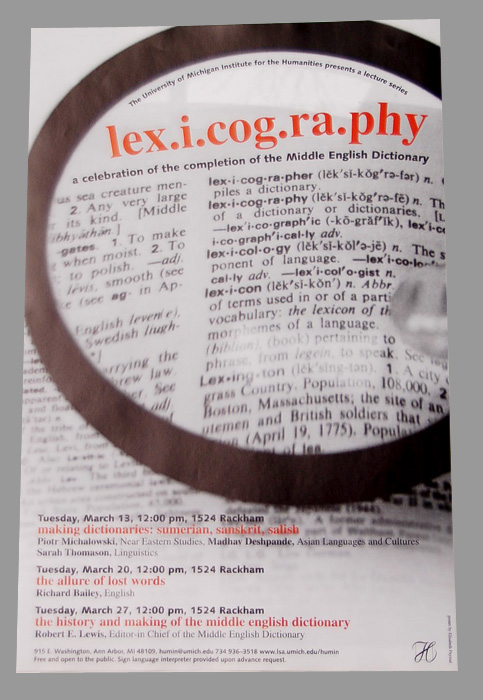
One of our in-class exercises was to watch a video of Erin McKean. She added a new word to my internal dictionary, which was lexicography. The Merriam-Webster online dictionary defines lexicography as the editing or making of a dictionary. When McKean first introduced this word I had no clue to what it was. McKean brought to light that dictionaries are becoming a dying force. People are using online forms of dictionaries to fulfill what a simple paper-back version could. People are getting lazy when it comes to their education by taking the easy way out. Picking up a dictionary and actually learning what a word means, or how to spell it is the only way to properly learn.
Shawna Blumenschein makes a similar statement in her own blog post. She states that "Learning from errors is the key to avoiding them in the future." Searching for the correct spelling of a word online makes it easier to forget the journey after you have found what your looking for. The speed of online dictionaries take away any actual learning ability. I realize I have contradicted myself because I used an online dictionary to define lexicography. While these dictionaries take away the journey of learning a word, they are extremely accessible. As I type away at this blog post, I can simply open up another tab and find a specific word extremely quickly. I may not remember the definition of lexicography a few days from now, but at least I know it for this blog post.

You're right,the academic search has changed so much in the last few years. In the past, people (including myself) spent hours in libraries doing research. Now we spend hours online doing research. There are some interesting implications about how our brains must be changing to adapt to a new style of learning.
ReplyDelete